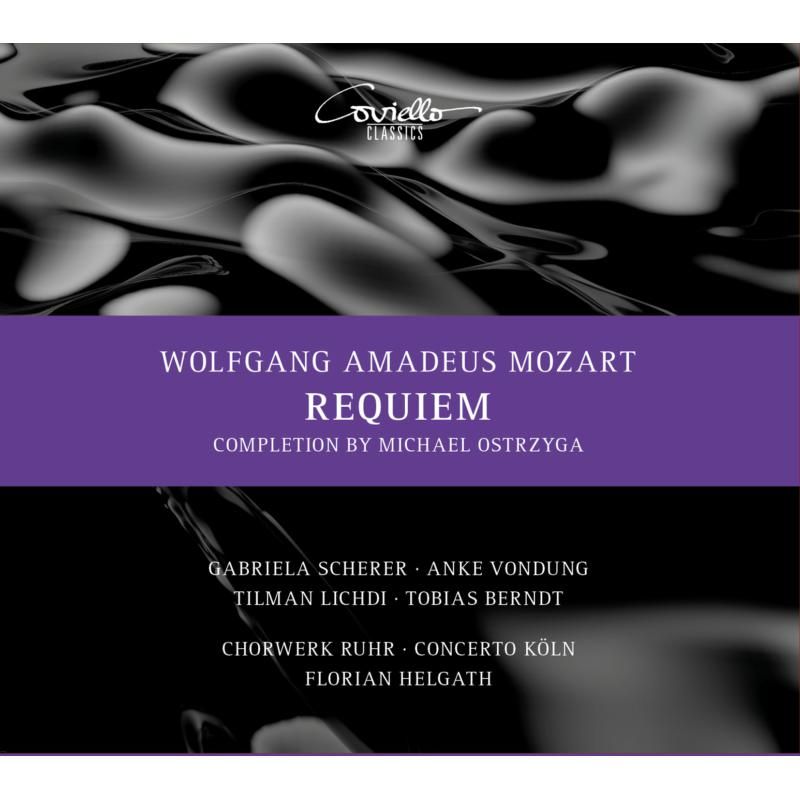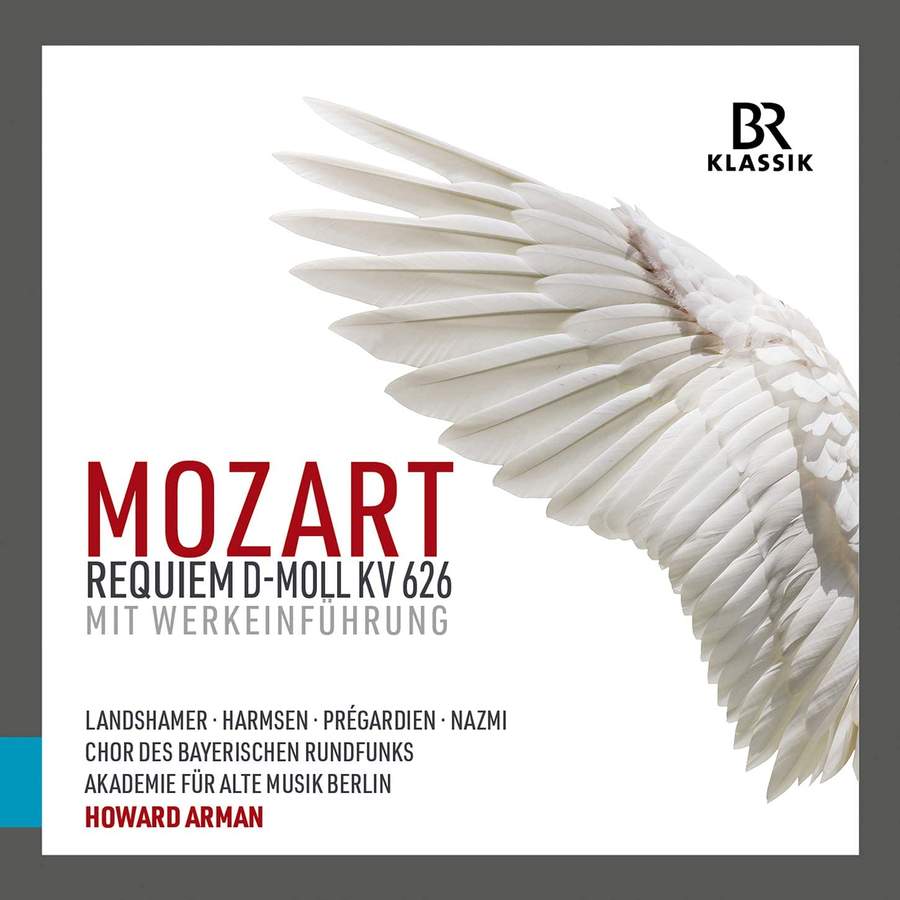MOZART Requiem (Helgath. Arman)
View record and artist detailsRecord and Artist Details
Genre:
Vocal
Label: Coviello
Magazine Review Date: 11/2020
Media Format: CD or Download
Media Runtime: 51
Mastering:
DDD
Catalogue Number: COV92009

Tracks:
| Composition | Artist Credit |
|---|---|
| Requiem |
Wolfgang Amadeus Mozart, Composer
Anke Vondung, Mezzo soprano Concerto Köln Florian Helgath, Conductor Gabriela Scherer, Soprano Ruhr ChorWerk Tilman Lichdi, Tenor Tobias Berndt, Bass |
Genre:
Vocal
Label: BR Klassik
Magazine Review Date: 11/2020
Media Format: CD or Download
Media Runtime: 154
Mastering:
DDD
Catalogue Number: 900926

Tracks:
| Composition | Artist Credit |
|---|---|
| Vesperae solennes de confessore, 'Solemn Vespers' |
Wolfgang Amadeus Mozart, Composer
Akademie für Alte Musik Berlin Chor des Bayerischen Rundfunks Christina Landshamer, Soprano Howard Arman, Conductor Julian Prégardien, Tenor Sophie Harmsen, Mezzo soprano Tareq Nazmi, Bass |
| Requiem |
Wolfgang Amadeus Mozart, Composer
Akademie für Alte Musik Berlin Chor des Bayerischen Rundfunks Christina Landshamer, Soprano Howard Arman, Conductor Julian Prégardien, Tenor Sophie Harmsen, Mezzo soprano Tareq Nazmi, Bass |
| Libera me |
Sigismund Neukomm, Composer
Akademie für Alte Musik Berlin Chor des Bayerischen Rundfunks Christina Landshamer, Soprano Howard Arman, Conductor Julian Prégardien, Tenor Sophie Harmsen, Mezzo soprano Tareq Nazmi, Bass |
Author: David Threasher
As the trend for recompleting Mozart’s Requiem approaches its semicentenary, two new versions appear, each tackling the revered fragment in its own way. The German composer Michael Ostrzyga ‘wanted to fathom the mysteries of the Requiem, attracted by the challenge of its contradictions and unconvinced by both questions posed and answers given so far’; he and the London-born composer-conductor Howard Arman in their own different ways strip Mozart’s music of the clumsy traditional orchestration to fashion something both familiar and unfamiliar.
What does this mean for the listener? In the Introitus, most of the Sequenz and the Offertorium the essence of the music does not depart from what may be found in any choral society vocal score. You will, however, notice string lines slightly recontoured, woodwind brought to greater prominence or unexpected blasts of brass and drums; here and there a harmony has been rethought. Things get more complicated in the ‘Lacrymosa’, where Mozart drafted only the first eight bars; there’s also the scribbled opening of a fugue for the ensuing ‘Amen’, discovered in the early 1960s. Both completers take this squib and flesh it out to full length, meaning that the ‘Lacrymosa’ has to be rejigged to lead into it, with Arman the most radical of the two in his continuation.
On the other hand, for movements where there is no physical material by Mozart, Arman leaves well alone, presenting the traditional version unrevised. Ostrzyga goes down the currently fashionable path of providing a sort of ‘fantasy on themes by Mozart’, presenting a redesigned ‘Benedictus’ that never quite goes where you expect and a ‘Sanctus’ recast in a startlingly Giovanni-ish D minor rather than the traditional D major. Whether you are persuaded by these interventions will depend on how receptive you are to new, intensely personal views of this warhorse that run counter to the tradition of a work that has been sung, cherished and argued over for well over two centuries. Each offers much food for thought, even if neither is likely to displace well-loved catalogue classics.
In terms of performance, Arman extracts full drama from the work with some driving tempos, while Florian Helgath (for Ostrzyga) takes a rather more reflective approach, despite some decidely precious dynamic interventions. Both disinter 19th-century attempts to append a Libera me to the work: Arman opts for one by Sigismund Neukomm composed for an 1821 performance of the Requiem in Rio de Janeiro, Helgath for an alternative by Ignaz von Seyfried from around 1800 that was also performed at Beethoven’s funeral, perhaps in this unaccompanied male-voice setting rather than in Arthur Schoonderwoerd’s SATB version with orchestra; both liberally paraphrase the Requiem at the appropriate words. Arman’s well-filled disc also offers a vivacious Solemn Vespers.
Discover the world's largest classical music catalogue with Presto Music.

Gramophone Digital Club
- Digital Edition
- Digital Archive
- Reviews Database
- Full website access
From £8.75 / month
Subscribe
Gramophone Full Club
- Print Edition
- Digital Edition
- Digital Archive
- Reviews Database
- Full website access
From £11.00 / month
Subscribe
If you are a library, university or other organisation that would be interested in an institutional subscription to Gramophone please click here for further information.




